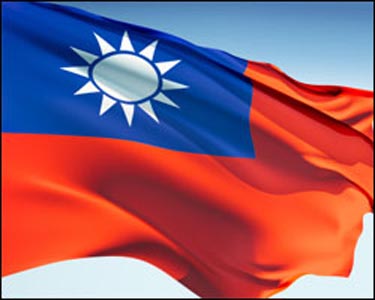[Updated at 23:36 PST on Jan 17, 2016: Tsai Ing-wen won a landslide victory to become Taiwan’s first female president. A full update will follow soon.]
With Taiwan going to the polls for both executive and legislative elections on Saturday, China Real Time’s Jenny W. Hsu provides brief profiles of the three leading presidential candidates. The Guardian’s Tom Phillips focuses on the likely winner, Tsai Ing-wen of the independence-inclined Democratic Progressive Party. She is described variously as worldly, tenacious, savvy, experienced, thoughtful and sincere, disarmingly low-key more than charismatic, and, in one leaked U.S. diplomatic cable, “extremely capable and very persuasive.” Tsai herself is said to favor comparisons with German Chancellor Angela Merkel. Final polls gave her an almost 30% lead over the Kuomintang’s (KMT) Eric Chu.
At The New York Times, the formerly Taipei-based Austin Ramzy writes that “as in past elections, the crucial political issue is China,” given widespread anger at the KMT for steering the island deeper into China’s orbit without delivering promised economic benefits. At The World Post, though, J. Michael Cole of the Tsai-affiliated Thinking Taiwan Foundation argues against viewing the election as a referendum on the KMT’s China policy, stressing that both Tsai and most voters have been more focused on domestic issues. Both Beijing and the KMT have warned that Tsai could derail peaceful cross-Straits relations. The KMT touts November’s meeting between presidents Ma Ying-jeou and Xi Jinping as evidence that it is best qualified to maintain healthy ties, while Chinese officials warn of “new challenges” to the “trend of peaceful development.” Tsai herself insists that her goal towards China is continued peace and stability. The U.S.—which last month authorized a $1.83 billion arms deal with Taiwan—has called for calm and continued dialogue.
South China Morning Post’s Samuel Chan and Lawrence Chung assess the likely impact of young first-time voters who, galvanized by their peers in the Sunflower protest movement of 2014, may favor the DPP for the presidency but alternative parties in the legislature. Among these is the Sunflower-derived New Power Party, whose candidates include former rock musician and Amnesty campaigner Freddy Lim. Marie-Alice McLean-Dreyfus examines the attitudes of younger Taiwanese in greater depth at Thinking Taiwan, while South China Morning Post’s Minnie Chan notes the KMT’s loss of support even among traditional strongholds such as elderly military veterans.
The New York Times’ Didi Kirsten Tatlow surveys official Chinese media coverage of the election, in which potentially sensitive terms like “president” are either omitted, talked around, or wrapped in quotation marks, and a “friendly, but largely patronizing, tone toward the island” prevails. One People’s Daily Online article, she reports, blames the election for causing “sleeplessness, headaches, faintness, loss of appetite, anger and violent tendencies.” As in previous years, election tourism from the mainland has flourished despite efforts to rein it in by withholding group travel permits. Other visitors include activists from Hong Kong hoping for lessons from Taiwan’s political culture in the face of increasingly assertive mainland influence in the territory. Chinese authorities seem as keen as ever to avoid such exchanges: New Power Party chairman Huang Kuo-chang was denied entry to Hong Kong last week.
China Real Time compiled images of the closing campaign from social media. South China Morning Post is following the election with a special live blog, while the University of Nottingham’s China Policy Institute Blog offers a list of Taiwan-focused Twitter accounts. The site has also compiled a guide to academic resources on Taiwanese democracy and an extensive directory of online materials. While the presidential contest is likely to steal most of the limelight, Ketagalan Media has a list of key races to watch in the legislature.







